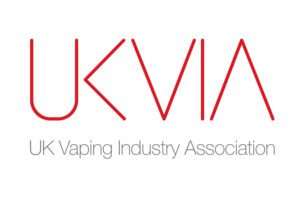PRESS RELEASE
The UK Vaping Industry Association (UKVIA) is alarmed at new data from Action on Smoking and Health (ASH) which reveals a worrying increase in the numbers of young people smoking.
The new data reveals that one-in-five 11-17-year-olds have tried vaping, unchanged since 2023, while ever smoking among young people has increased from 14% in 2023 to 21% in 2025.
Vaping prevalence among adults remains at 10.4%, unchanged since 2024, suggesting the growth in uptake has stalled. With around a quarter of adult smokers in GB never having tried vaping, this is an issue which must be urgently addressed.
UKVIA Director General John Dunne said: “The UKVIA has always been clear that under 18s should not be vaping (or smoking for that matter) and it is deeply troubling to see smoking rates rise, particularly after a long period of decline and especially so among under 18s.
“We can’t afford to wait a moment longer to clamp down hard on retailers who sell age-gated products to minors. This is why we need a vape licensing scheme to ensure compliance with the law, put persistent offenders out of business and act as a deterrent to others.
“Enforcement in the UK is patchy at best, fines are woefully low and rogue retailers will continue flouting the law if they think they can get away with it.”
The ASH data on adult vaping trends shows that misperceptions about vaping harms have increased, with 53% of adult smokers believing that vaping is as harmful or more harmful than smoking. The ASH youth survey revealed that 63% of young people have the same misperception – up from 41% in 2022.
John added: “The misperceptions regarding the relative risks of smoking and vaping threaten to derail the government’s smokefree goals and we need a national public health information campaign to set the record straight.
“The rise in youth smoking experimentation should be a wake-up call for the government. Policies must prioritise reducing youth access to all nicotine products and not come at the cost of reversing progress on smoking rates.
“We urge public health authorities to step up efforts to communicate the clear scientific consensus that vaping is significantly less harmful than combustible tobacco use and remains the UK’s most effective quit aid for adult smokers. Smoking still claims 220 lives every day in the UK and we must bring these numbers down.
“As the UK moves into a new regulatory phase following the ban on single-use vapes, the UKVIA and its members remain committed to working with regulators, trading standards and public health experts to ensure products stay out of children’s hands while remaining accessible and appealing to adult smokers who want to quit.”
On a more positive note, the figures show that 10% of GB adults vape, equal to an estimated 5.5 million people.






 The U.K. Vaping Industry Association’s (UKVIA) annual Industry Forum will take place at the London Marriott Hotel Regents Park on Friday, Nov. 15.
The U.K. Vaping Industry Association’s (UKVIA) annual Industry Forum will take place at the London Marriott Hotel Regents Park on Friday, Nov. 15.









